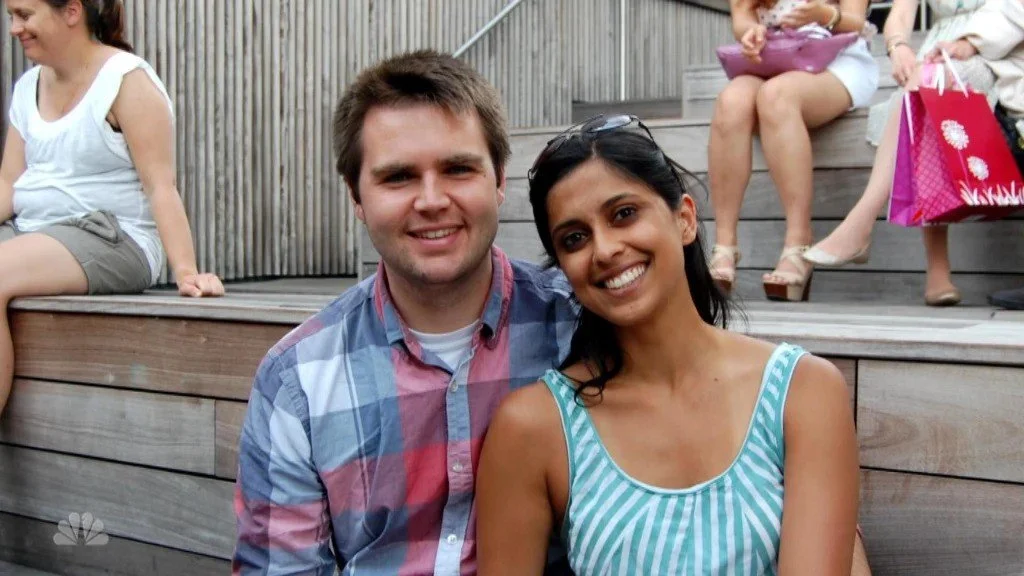Love, Attraction, and Ethics: The Complexities of Non-South Asians Seeking Indian Partners
The New York Times recently published an advice column response to a white man questioning whether he could combat his internal racism by dating people of color. This question—and the larger discussion it sparked—reminds me of the many non-South Asians who ask if they can attend our events or if we would take them on as matchmaking clients. Their reasons vary: some vibe with Indian culture, practice a form of Hinduism, or appreciate aspects of being Indian or brown. But at the core of these inquiries lies a deeper question: Are they seeking genuine connection, or are they fetishizing South Asian culture and women?
Love Knows No Bounds—Or Does It?
I firmly believe that love is love. Ethnicity, race, nationality, creed—none of these should be barriers when two people have mutual respect, understanding, and shared values. A successful relationship isn’t about a partner fulfilling a cultural curiosity or serving as a means for personal growth. It’s about two people aligning on how they want to live and be together.
However, when non-South Asians, particularly white men, actively seek out Indian women, I can’t help but notice that the reverse is much less common—non-Indian women rarely show the same interest in South Asian men. This brings up an important question: Is this a trope, or is there a legitimate trend at play? And if it is a trend, what does it say about attraction, power dynamics, and desirability in the dating world?
The Rise of "Indian Cool" and the White Obsession with Big Fat Indian Weddings
It’s no secret that being Indian has become the next big thing. From Bollywood dance moves making their way into mainstream pop culture to turmeric lattes and yoga studios on every corner, Indian culture is having a major moment. And let’s not forget the ultimate golden ticket—an invite to a Big Fat Indian Wedding.
So many white people these days are going above and beyond to stay in the good graces of their Indian co-workers and friends, all in the hopes of scoring that coveted wedding invite. Because let’s be real, who wouldn’t want to experience the grandeur, endless food, and multi-day festivities? But it does beg the question—are they genuinely interested in Indian culture and connections, or are they trying to compensate for something missing in their own cultural experiences?
The Ethics of Choosing a Partner
Attraction is personal, but it’s also shaped by societal narratives. Some non-South Asians romanticize Indian culture or see dating a South Asian partner as a way to access that world. But choosing a partner should never be about what they can do for you—whether that’s broadening your worldview, giving you cultural credibility, or helping you overcome personal biases. A relationship should be built on who that person is, not what they represent.
Just the other day, we had a white guy reach out to us, excitedly stating that he only dates Indian women, which is why he wanted to join our matchmaking service. While we appreciate his enthusiasm, the specificity of his preference was a red flag. Is he genuinely drawn to Indian women for their personalities and shared values, or is this just another case of fetishization in action?
The Fine Line Between Preference and Fetishization
There’s a clear distinction between having a cultural appreciation and fetishizing a group of people. The former is about genuine interest and respect, while the latter reduces a partner to their race or ethnicity. Some signs of fetishization include:
Seeing someone as an “exotic” partner rather than a fully realized individual
Preferring a partner because of their race rather than for who they are
Making assumptions about their personality, values, or submissiveness based on stereotypes
JD Vance, Usha Vance, and the Politics of Interracial Love
A glaring example of the complexities of interracial relationships is JD Vance and his wife, Usha, an Indian-American woman. Vance, now a Vice President candidate, has made headlines not just for his politics but for his silence when it comes to standing up for his wife and mixed-race children in the face of rising anti-Indian sentiment. The normalization of Indian hate in certain political circles makes his unwillingness to defend his own family all the more troubling. It raises an uncomfortable question: If a white partner cannot—or will not—stand up for their Indian spouse when it matters most, what does that say about the foundation of that relationship?
It’s not just about love and attraction—it’s about shared values, respect, and the ability to have tough conversations about race, identity, and cultural belonging. A relationship that cannot withstand these pressures may not be as strong as it seems.
Are Indian Women Dominating White Men?
There’s also an interesting theory—often shared by comedians and cultural commentators—that dominant Indian women who struggle to find strong-willed South Asian partners end up with white men who are more accommodating. Essentially, the idea is that certain Indian women, who may be seen as too outspoken or headstrong within their own community, find it easier to date white men who are perceived as more willing to go along with their lead. It’s not a universal truth, but there’s enough anecdotal evidence floating around to make you wonder—are these pairings happening because of genuine compatibility, or is there an element of perceived control and influence?
Final Thoughts
Interracial relationships can be deeply fulfilling, but they should be rooted in authentic connection, not as a means of self-improvement or cultural exploration. If you’re drawn to Indian culture, immerse yourself in it without centering your romantic life around it. Love is not a tool for self-betterment—it’s about finding someone who truly aligns with you.
As for whether we welcome non-South Asians into our events and matchmaking services? Of course! But our focus remains on fostering meaningful connections, not fulfilling fantasies. Whether you’re South Asian or not, the most important thing is that you seek a partner for the right reasons—because of who they are, not what they represent.
What are your thoughts on this topic? Have you noticed this pattern in interracial dating? Let’s discuss!


